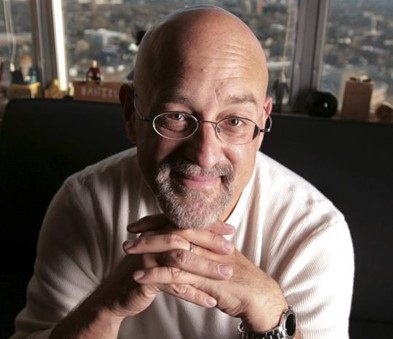2 minute read
Out Islands
When Harvard Psychology Professor Dan Gilbert was the featured speaker at an Annual Bigelow Forum several years ago, he hilariously tormented us saying that, “you entrepreneurs obviously don’t know what your goals should be, because you don’t know what will make you happy in the future. You are pathetic at knowing what will make you happy in the future—we all are. So, you strive for achievements that would have made you happy in your past, but which will not fulfill the person you’ll be in five years.” Really? We paid this guy to come torture us? Ouch.
If you ask people how much they will change in the next five years, they almost always say, “a little bit.” Then, if you ask the same people how much they have changed in the last five years, they almost always say, “a lot.” At almost any age, we act as if any changing or growing we are going to do as individuals is complete. Which is absurd, because we are almost always in a state of change all the way to the end.
In making important strategic decisions, the most significant error that Entrepreneur Owner-Managers make is that they think they are choosing for who they are right now. Who they should actually be choosing for, is for the person they are going to grow into 5 years from now, who is actually going to be very different from who they are right now.
Gilbert and his research partners publish this as ”The End of History Illusion” (not a title that I love, but hey they didn’t consult me). Paraphrasing Gilbert’s research, “At every stage of life, people make decisions that profoundly influence the lives of the people they will become—and aren’t always thrilled about it. Why do people so often make decisions that their future selves regret?”
They concluded that people make decisions as if they believe that who they are today is pretty much who they will be tomorrow… despite the fact that it isn’t who they were yesterday. People in the research expected to change little in the future, despite acknowledging they have changed a lot in the past, and this tendency muddles their decision making.
Why should we be interested in this scholarship? Because I see (sometimes in the mirror) high-performing private business owners making decisions based upon preferences that they previously had, not the ones that they will likely have in 5, 10, or 20 years. And when it comes to thinking about our enterprises, it matters, right, because often what we’ve done or how we’ve behaved in the past has become depressingly stable. To use the language of complex systems theory, there are multiple local stable equilibria, and positive change requires escaping the gravitational pull of one local equilibrium to enter another. This requires courage, active leadership, and does not happen by itself.
People like to believe that they know themselves well, in order to think well of themselves, and to feel secure in that understanding. Across six studies of more than 19,000 participants, Gilbert et al found consistent evidence to indicate that people underestimate how much they will change in the future and that doing so will lead to suboptimal decisions.
Prospection is a constructive cognitive process where retrospection is a reconstructive process. Constructing new things is typically more difficult than reconstructing old ones. People confuse the difficulty of imagining personal change with the unlikelihood of change itself.
What if when we make decisions about our future or that of our enterprises, we first ask ourselves, “who am I going to become in five years? What achievement will fulfill my goals five years from now”?
What I am Reading / Listening to
The Man She Married (2020)
By Alison James
Contributed by Marisa B. Lister
If you have read any of my book reviews in the past, you know I have an affinity for thrillers and mysteries, so there is no surprise that this one also falls in this category. The Man She Married hooked me at first and then annoyed me. The main character Alice is jilted at the altar and resolves herself to never finding love, instead throwing herself into her catering business. Then literally, in walks Dominic into the elevator she is on and everything changes. Alice quickly falls under his spell and even allows him to move in with her a few short months in.
What was most frustrating to me was how gullible Alice was. Dominic’s warning signs were blatant and glaring and the fact that a smart, educated modern women (especially after being jilted at the altar) ignored them made me mad.
Fast forward three years, Alice finds out she is pregnant on the same day she receives a knock on her door that Dominic has been killed in a car accident. Here is where it all unravels and we learn who Dominic really is and Alice finally has to face the truth. While James does a decent job of redeeming Alice a bit at the end, I just couldn’t get over the naivety of Alice. Entertaining but not believable.

Entrepreneur Owner-Manager Quote
“Beyond the strategic direction and guidance that Bigelow provided throughout this process, they became an extended part of our team and as enthusiastic and passionate about our business as we are. Their thoughtful, proactive approach to learning about the business and building our story to engage with potential investors was paramount for our ultimate success.”
-John Farrer, Founder & Chairman of Right Networks, Inc.


